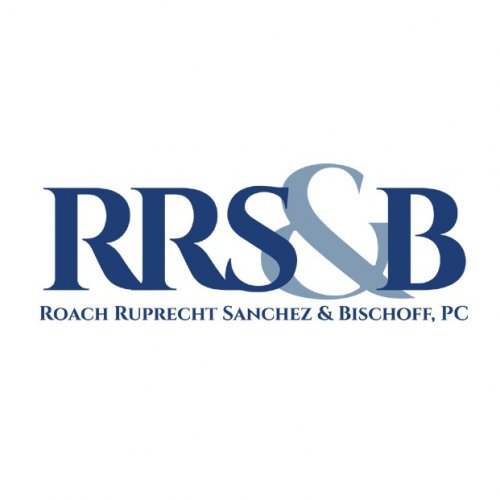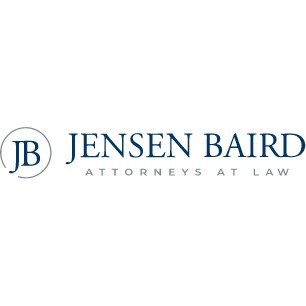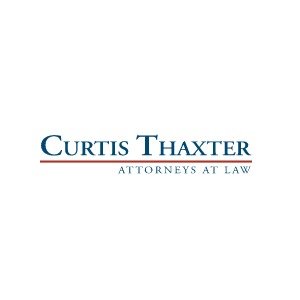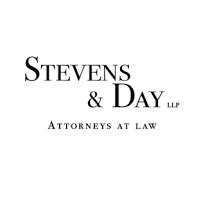Best Ethics and Professional Responsibility Lawyers in Maine
Share your needs with us, get contacted by law firms.
Free. Takes 2 min.
Or refine your search by selecting a city:
List of the best lawyers in Maine, United States
About Ethics and Professional Responsibility Law in Maine, United States
Ethics and Professional Responsibility law governs the conduct of attorneys and other legal professionals within the state of Maine. These laws and rules are designed to protect the public, maintain the integrity of the legal profession, and ensure that lawyers adhere to high standards of honesty, competence, and fairness in their professional activities. In Maine, the ethical rules are based primarily on the Maine Rules of Professional Conduct, which provide guidelines on matters such as confidentiality, conflicts of interest, communication with clients, and maintaining client trust accounts.
Why You May Need a Lawyer
There are various situations where individuals or other attorneys may need legal assistance related to Ethics and Professional Responsibility in Maine:
- Facing allegations of professional misconduct or violations of the Maine Rules of Professional Conduct
- Receiving a complaint or inquiry from the Maine Board of Overseers of the Bar
- Dealing with conflicts of interest, client confidentiality issues, or questions regarding attorney-client privilege
- Needing guidance on appropriate fee arrangements, advertising, or solicitation practices
- Seeking advice when transitioning between law firms to avoid ethical breaches
- Handling grievances filed by clients or other parties
- Understanding reporting obligations regarding the misconduct of another attorney
- Defending against disciplinary proceedings or appeals arising from ethics complaints
- Clarifying responsibilities when serving as a public official, in-house counsel, or in a multi-jurisdictional practice
- Guidance for law students or new attorneys regarding bar admissions and ethical expectations
Local Laws Overview
Maine's approach to Ethics and Professional Responsibility is centered on the Maine Rules of Professional Conduct, which closely track the American Bar Association (ABA) Model Rules but contain some local variations. Key aspects include:
- Confidentiality: Lawyers are obligated to maintain client confidentiality unless disclosure is authorized or required by law.
- Conflicts of Interest: Attorneys must avoid representing clients where a conflict of interest exists, unless certain conditions are met and proper consent is obtained.
- Fee Arrangements: All fees must be reasonable and clearly communicated to the client. Fee disputes may be subject to mandatory fee arbitration in Maine.
- Client Funds: Special rules apply to the safekeeping of client property, particularly regarding trust accounts and financial management.
- Advertising: Legal advertising and solicitations must not be false, misleading, or violate other specified requirements.
- Reporting Misconduct: There is a duty to report certain types of professional misconduct by other lawyers.
- Disciplinary Process: The Board of Overseers of the Bar investigates, disciplines, and, if necessary, prosecutes ethical violations by lawyers in Maine.
- Competency and Diligence: Lawyers must provide competent and diligent representation to all clients.
- Responsibilities of Supervisory and Subordinate Lawyers: Rules clarify the ethical duties of lawyers in managerial or subordinate positions.
Frequently Asked Questions
What should I do if I believe my lawyer has acted unethically?
If you suspect your lawyer has violated ethical rules, you can file a complaint with the Board of Overseers of the Bar in Maine. It is important to gather documentation and details regarding your concerns. You may also consult with another attorney for advice.
How do I file a complaint against a lawyer in Maine?
Complaints can be submitted in writing to the Board of Overseers of the Bar. Their website provides instructions and forms to help you outline your concerns and provide the necessary information to start an investigation.
What happens after I file an ethics complaint?
After a complaint is filed, the Board will review the allegations, may conduct additional investigation, and determine whether formal disciplinary proceedings are warranted. The lawyer involved will typically be given an opportunity to respond.
Can I recover money through an ethics complaint?
Ethics complaints are designed to address professional conduct, not to recover financial damages. However, if your complaint involves the mishandling of client funds, the Maine Lawyers' Fund for Client Protection may provide some compensation in certain circumstances.
What are the most common reasons lawyers face discipline in Maine?
Common reasons include misuse of client funds, violating confidentiality, failing to communicate with clients, and conflicts of interest. Unprofessional conduct, neglect, and criminal activity can also result in discipline.
Are the proceedings against lawyers public?
Some disciplinary proceedings become public, especially if formal charges are filed or sanctions are imposed. However, initial investigations and certain decisions may remain confidential unless a violation is found.
What responsibilities do lawyers have regarding conflicts of interest?
Lawyers must avoid representing clients where a conflict of interest might impair their judgment or loyalty. If one exists, they must either decline representation or obtain informed consent from all affected parties.
Can non-lawyers file ethics complaints?
Yes, anyone who believes a lawyer has violated ethical rules can file a complaint. This includes clients, other attorneys, judges, and members of the public.
What rules govern lawyers’ advertising and solicitation in Maine?
Lawyer advertising in Maine must not be false or misleading and must comply with state-specific rules outlined in the Maine Rules of Professional Conduct, particularly regarding truthful communications and the identification of advertising materials.
How can a lawyer defend against allegations of misconduct?
A lawyer can defend themselves by responding in detail to the complaint, presenting evidence, and possibly hiring counsel experienced in legal ethics defense. Participating actively in the investigative process and providing documentation can help clarify the facts.
Additional Resources
For those seeking further assistance or information regarding Ethics and Professional Responsibility in Maine, the following resources may be helpful:
- Board of Overseers of the Bar: The primary regulatory body for the legal profession in Maine. Handles complaints, disciplinary actions, and guidance for lawyers regarding ethical conduct.
- Maine Rules of Professional Conduct: The definitive source of rules for attorney behavior and ethical obligations in the state.
- Maine State Bar Association: Offers resources, continuing legal education, mentoring, and referral programs for lawyers and the public.
- Maine Lawyers’ Fund for Client Protection: Provides financial reimbursement to clients who have suffered losses due to attorney misconduct involving client funds.
- Law Schools and Legal Clinics: Local law schools may offer clinics or educational resources to the public and attorneys on ethics issues.
Next Steps
If you need legal assistance concerning Ethics and Professional Responsibility in Maine, consider the following steps:
- Gather all relevant documentation, correspondence, and facts concerning your situation or concern.
- Consult with an attorney who has experience with Ethics and Professional Responsibility matters in Maine if you have questions about your own conduct or are responding to a complaint.
- File a formal complaint with the Board of Overseers of the Bar if you believe an attorney has acted improperly.
- Take advantage of the Maine State Bar Association’s resources, including lawyer referral programs and educational materials, to find appropriate legal representation.
- Keep informed about the status of any ethics proceedings if you are involved in a disciplinary matter and comply with all deadlines and requests for information.
Lawzana helps you find the best lawyers and law firms in Maine through a curated and pre-screened list of qualified legal professionals. Our platform offers rankings and detailed profiles of attorneys and law firms, allowing you to compare based on practice areas, including Ethics and Professional Responsibility, experience, and client feedback.
Each profile includes a description of the firm's areas of practice, client reviews, team members and partners, year of establishment, spoken languages, office locations, contact information, social media presence, and any published articles or resources. Most firms on our platform speak English and are experienced in both local and international legal matters.
Get a quote from top-rated law firms in Maine, United States — quickly, securely, and without unnecessary hassle.
Disclaimer:
The information provided on this page is for general informational purposes only and does not constitute legal advice. While we strive to ensure the accuracy and relevance of the content, legal information may change over time, and interpretations of the law can vary. You should always consult with a qualified legal professional for advice specific to your situation.
We disclaim all liability for actions taken or not taken based on the content of this page. If you believe any information is incorrect or outdated, please contact us, and we will review and update it where appropriate.
Browse ethics and professional responsibility law firms by city in Maine
Refine your search by selecting a city.













